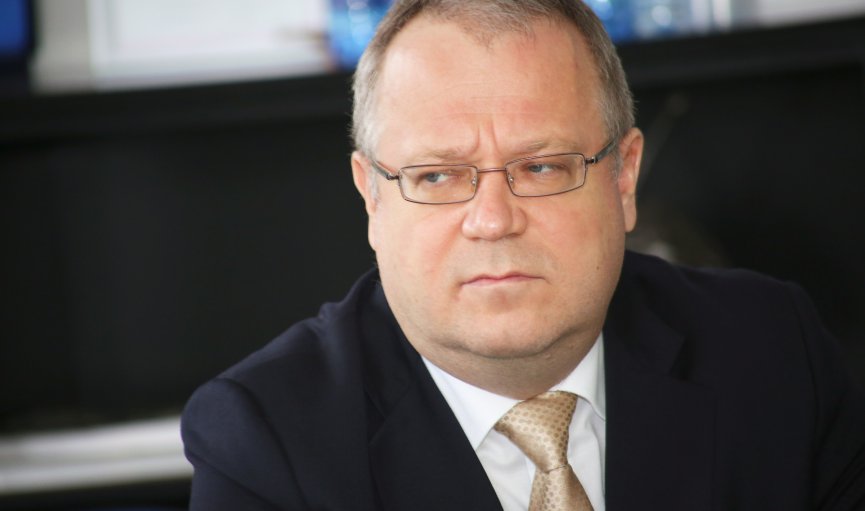As well as acting as broadcast watchdog with the power to take action if illegal or inappropriate material is broadcast, the NEMMC is also in overall charge of the funding of public broadcasting in Latvia, including the LSM news portals in Latvian, Russian and English.
In a nutshell:
- In mid-June the NEMMC received criticism from politicians for swearing on a youth rap show on radio Pieci.lv, and members of the NEMMC were hauled before parliament to answer questions from MPs;
- The NEMMC issued an open letter claiming politicians are 'trying to destroy' them after four Saeima factions filed a submission for the dismissal of the NEMMC;
- The Latvian Journalists' Association (LJA) called for creating a public commission to evaluate the NEMMC's work as representatives of Saeima didn't show up to a discussion with the members of the NEMMC, heads of public service media and members of the journalists' association;
- After the LJA had appealed to the OSCE, representative Dunja Mijatović urged to respect the Latvian media regulators' independence.
The council was elected three and a half years ago and MPs stressed even then that the main challenge is finding people who won't be swayed by the politicians. The decision seems to have backfired.
The now notoriously unpopular leader of Vienotība (Unity) Solvita Āboltiņa had signed for confirming the members of the council, but her signature was now among those who had voted for sacking the NEMMC. Members from all the parties except Harmony and National Alliance have signed for dismissing the board of NEMMC.
The NEMMC was criticized on three fronts - for allowing Russian programming on Radio Skonto plus, for wasting money and for the 'loss of reputation' that the council has suffered.
Ainārs Dimants starkly addressed the criticism for the Russian programming: "All the time we talk about Russian propaganda on the Russian-speaking radio stations. However, this station is well-known [...] and is ready to start broadcasting in Russian. A powerful broadcaster, of which one of the owners is a man who was once almost exiled from the USSR and who offers creating alternate programming and to reach the inhabitants of Riga," said Dimants
One of the key points of the politicians' submission to sack members of the governing council stated that the NEMMC wasted around a million euros through inefficient spending and administration, based on a State Audit Office report.
A news story at Latvian Television (Latvian only) showed that the money wasn't wasted, but instead switched pockets towards the end of the year as the council moved funds to cover next years' expenses.
The news story revealed that the practice is ubiquitous, with the Ministry of Defense having moved 17 million euros that way, with the High Court, the Ministry of Culture, the Ministry of Education, the President's Chancellery and a number of other institutions have followed suit. Why the NEMMC should be punished for a widespread practice is anyone's guess.
Media experts are also perplexed about the recent developments.
"The criticism of the council is related to content, not some strategical or structural matter. That is [they are concerned] about the way the media portrays different events," said Anda Rožukalne, a professor at the Riga Stradiņš University.
"The politicians want to directly control the media organizations and to reorder the remaining media structure according to their own interests. That's why the only way [for them to reach their goals] is to obtain a more obedient council," said Rožukalne.
The decision about firing members of the council is to be made on July 2 by the Saeima Human Rights and Public Affairs Committee.



























